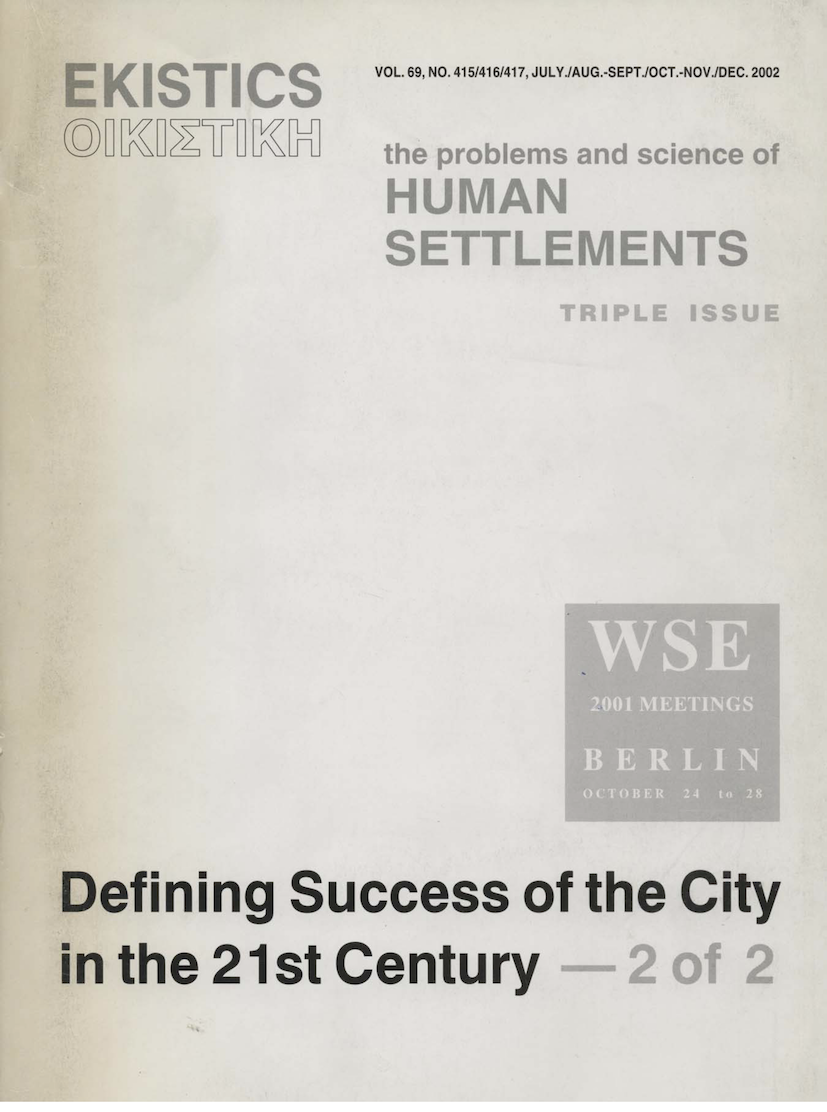What could be considered a successful city of tomorrow
DOI:
https://doi.org/10.53910/26531313-E200269415-417362Keywords:
City, FutureAbstract
The author, an architect, is currently President of the International Union of Architects (UIA) and has played an active part in the variousactivities of the Union as a member of the UIA Council between 1985 and 1990, then Vice President for Region II from 1990 to 1993 and Secretary General from 1993 to 1999. Born in Athens (Greece), Vassilis Sgoutas graduated from the University of Cape Town in 1957 and has his own practice in Athens. Projects carried out both in Greece and the Middle East include public buildings, industrial architecture, commercial buildings, hospitals, rehabilitation centers, restoration work and landscape architecture. He has won numerous awards in competitions including 2 of 30 ex-aequo prizes awarded by the Greek Ministry of Public Works for the best buildings of the period 1973-1983 and the Ministry of Environment ex-aequo award for innovative housing. He was President of the Greek Section of the UIA from 1981 to 1993 and has been a representative Council Member of the Technical Chamber of Greece (TEE) since 1984. He is actively involved in matters related to the environment and the disabled. He was a member of the EEC Helios Committee for the Handicapped (1989-1993); member of the Experts Committee for the "European Manual for an Accessible Built Environment" (1990) and the "European Concept for Access" (1995). He is a Board member of the Athens Forest Association and the Greek Spastics Society and a member of the World Society for Ekistics (WSE). The text that follows is an edited and revised version of an address by the author in his capacity as President of UIA to the annual General Assembly of the WSE following the WSE Symposion "Defining Success of the City in the 21st century," Berlin, 24-28 October, 2001.
Downloads
Published
How to Cite
Issue
Section
License
Please contact the Editor-in-Chief: editor@ekisticsjournal.org, should you have any questions on copyright for your submission.
This research journal is for Educational and Knowledge development purposes.
All material published on this site complies with our copyright and terms as described by the Attribution-NonCommercial-NoDerivaties 4.0 International (CC BY-NC-ND 4.0)






